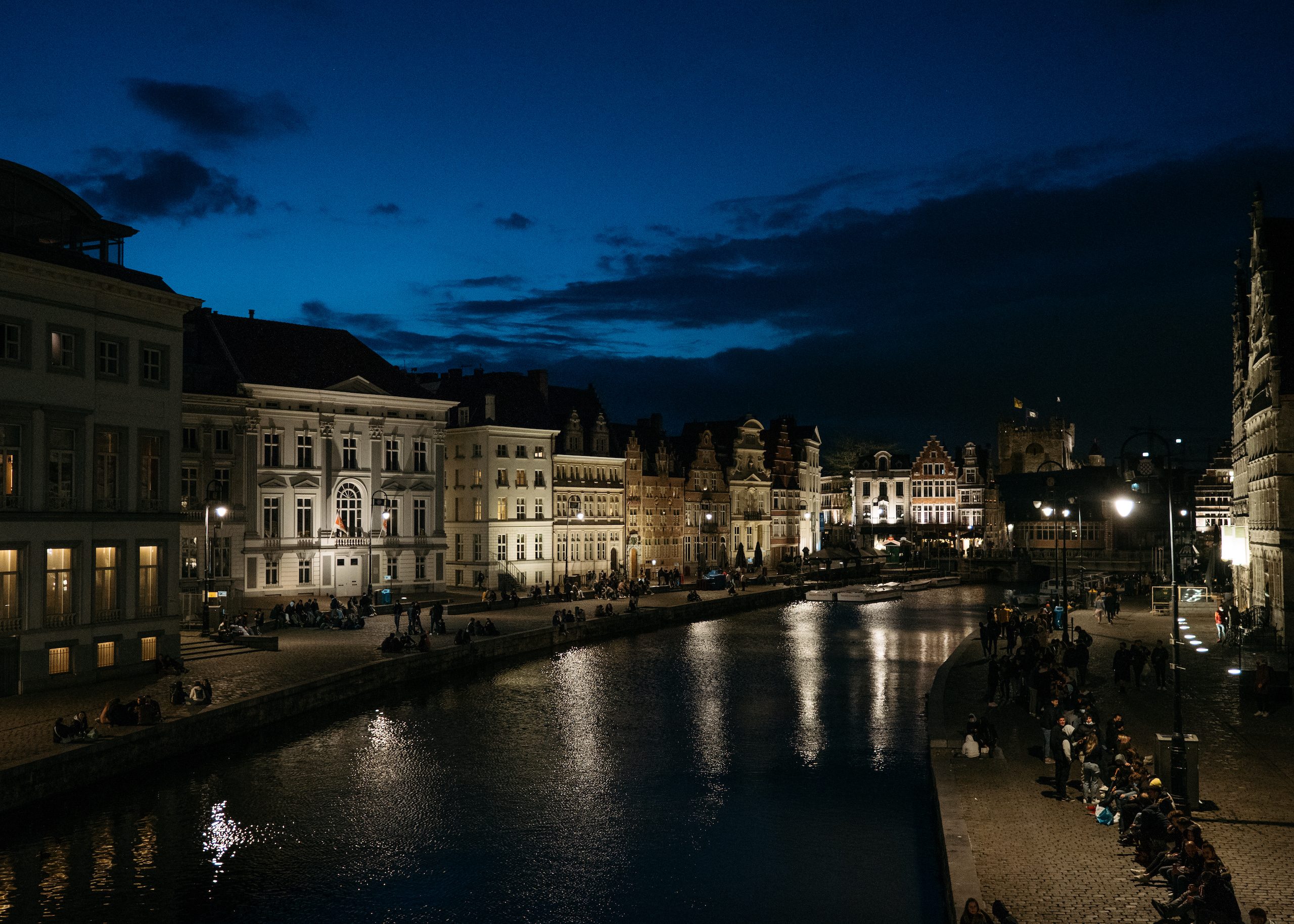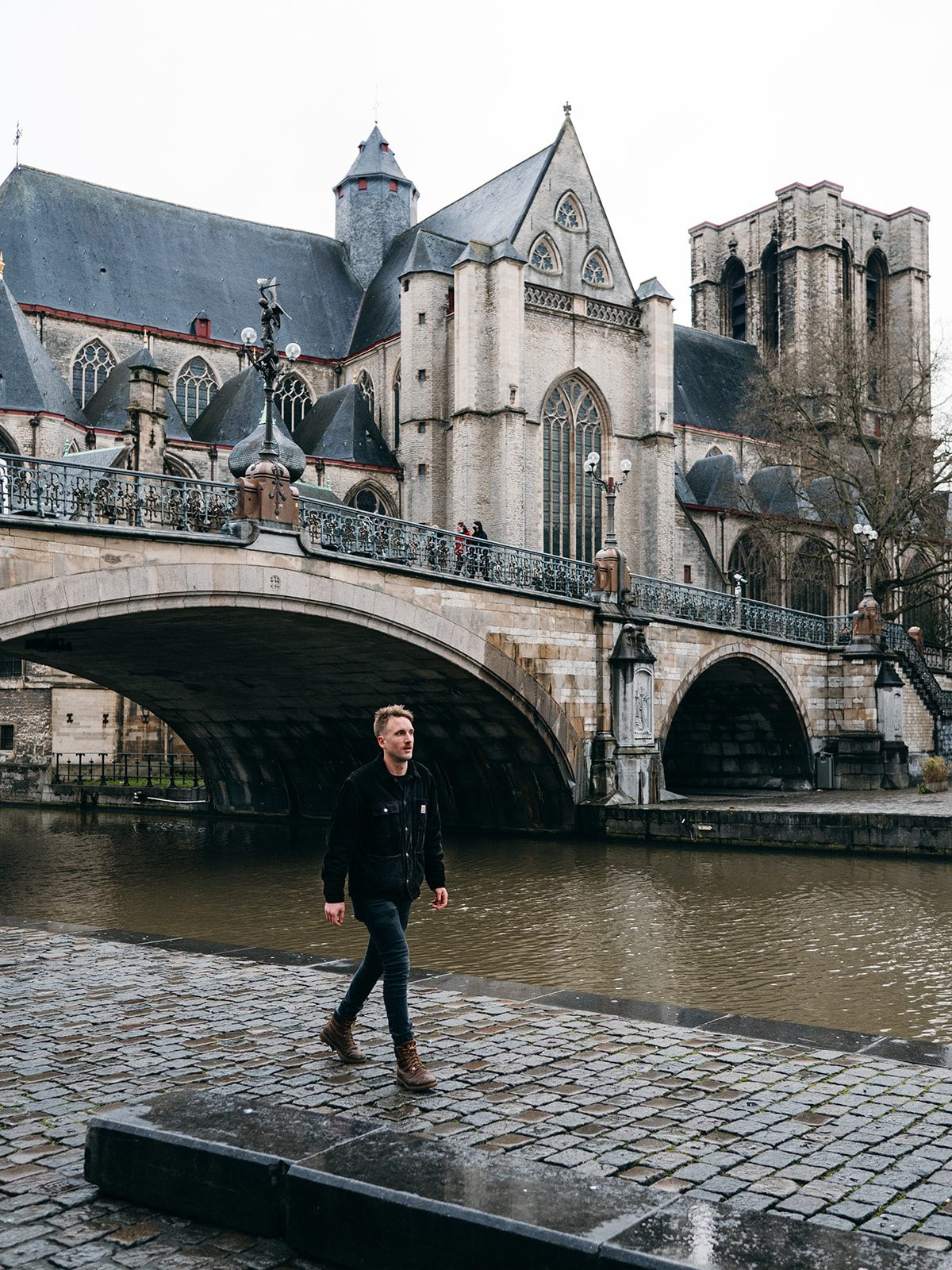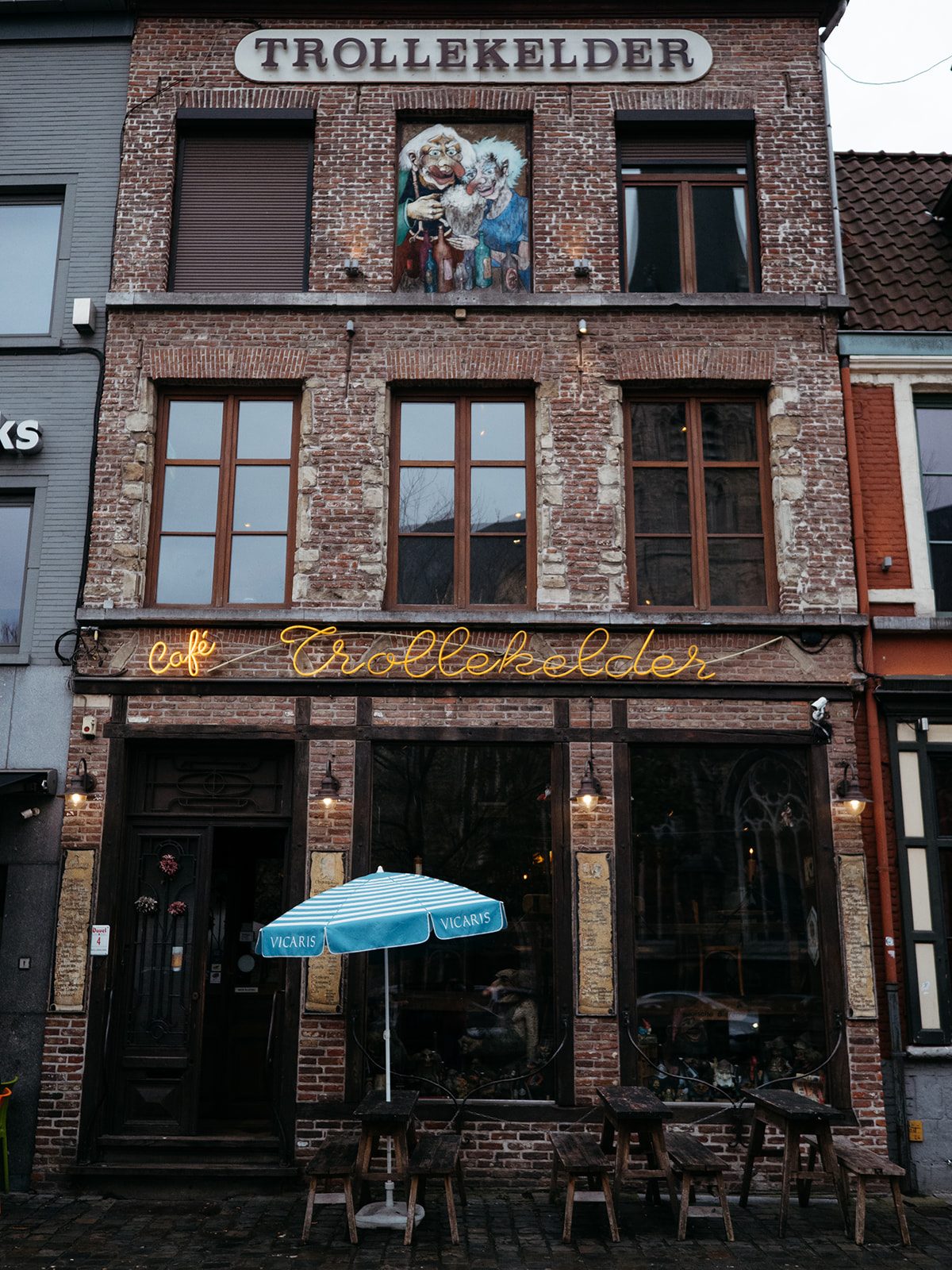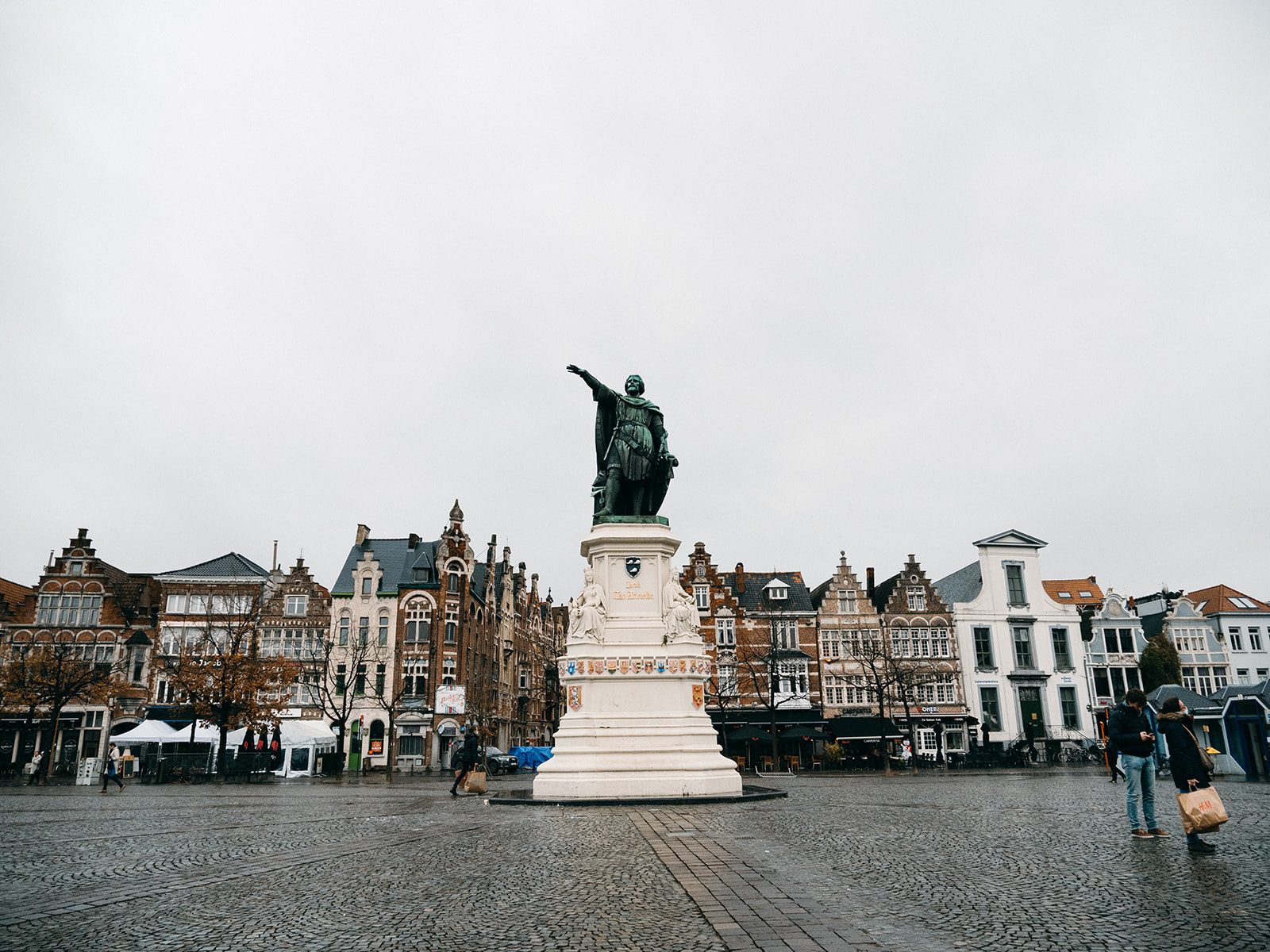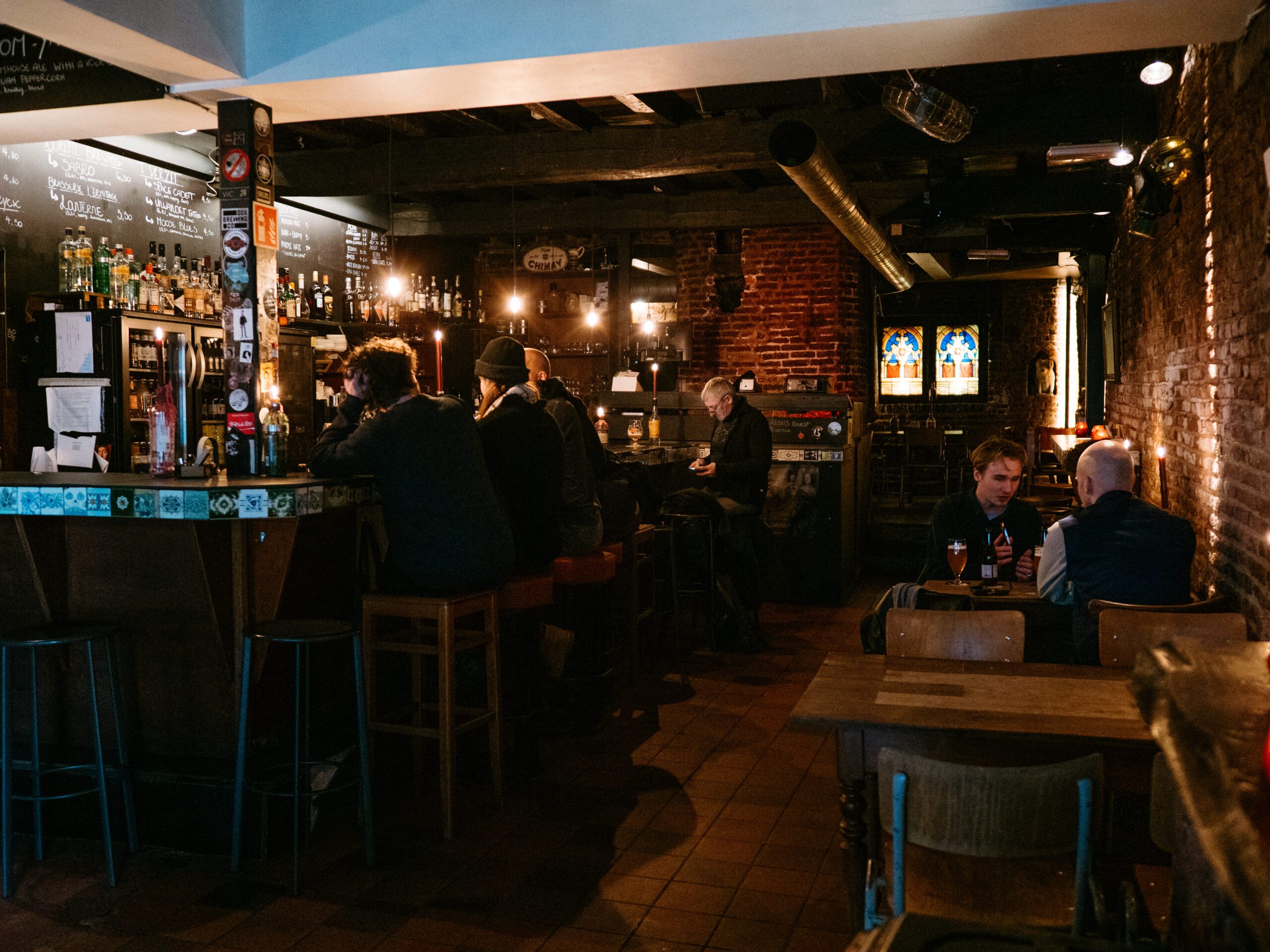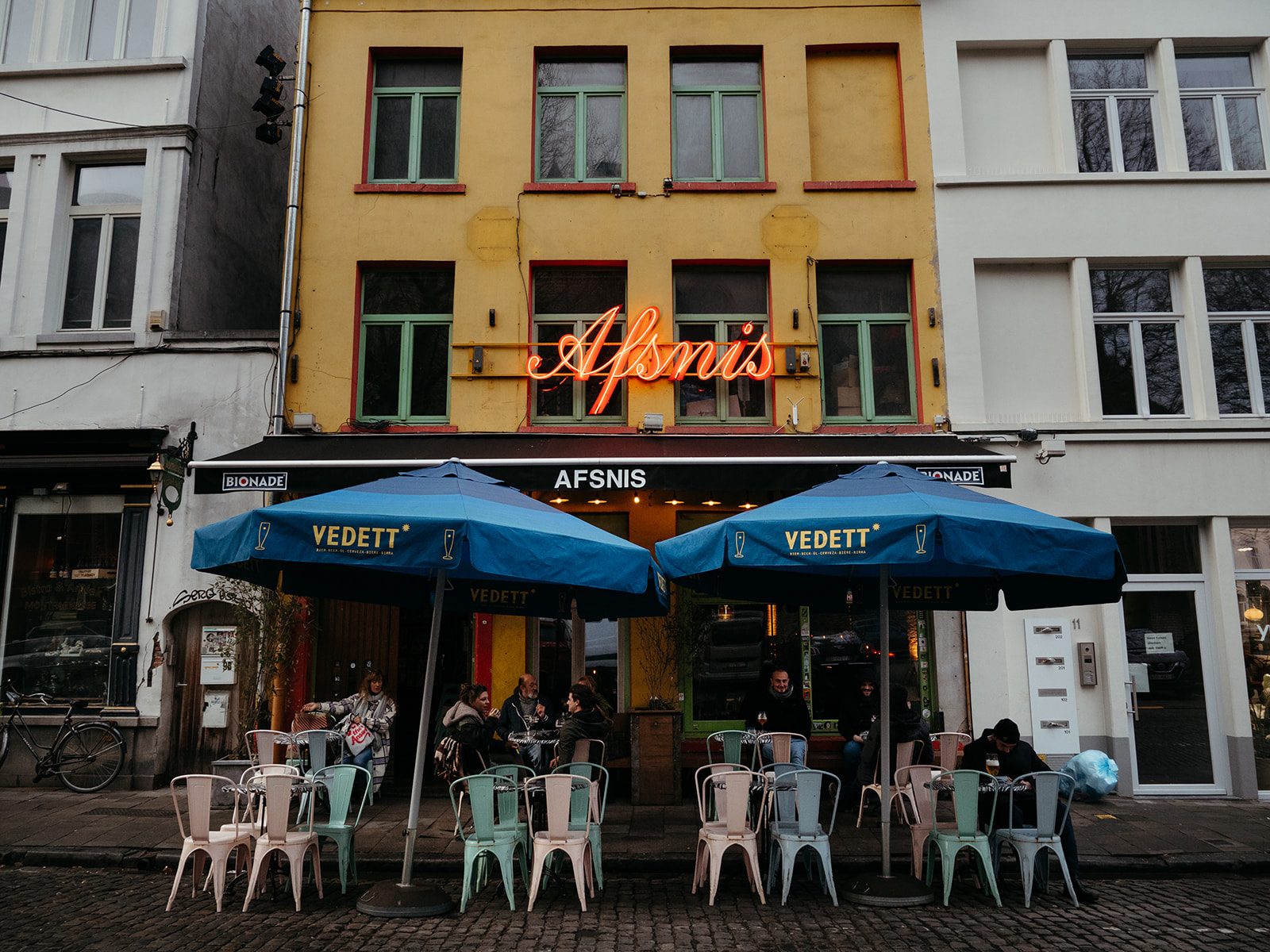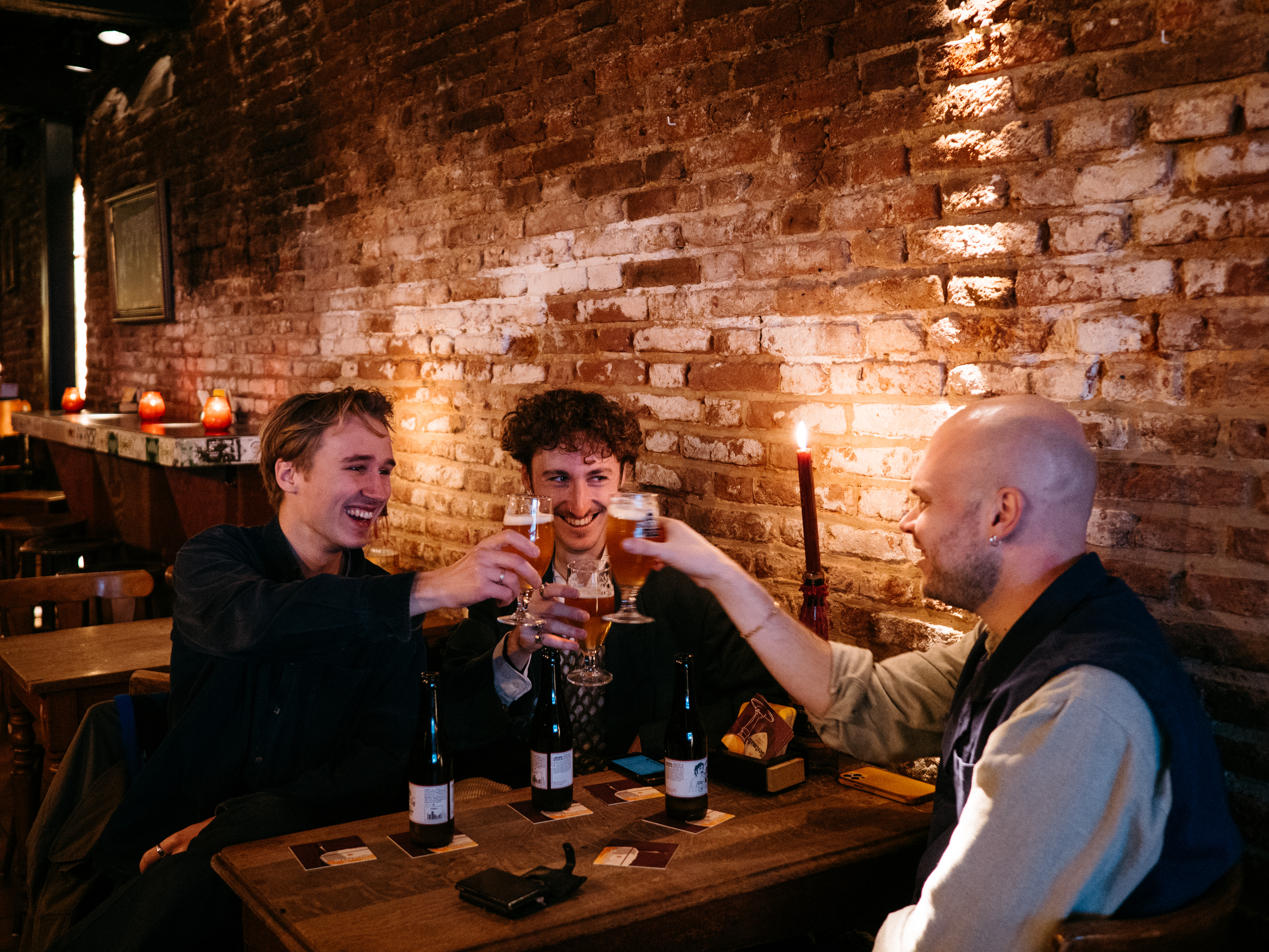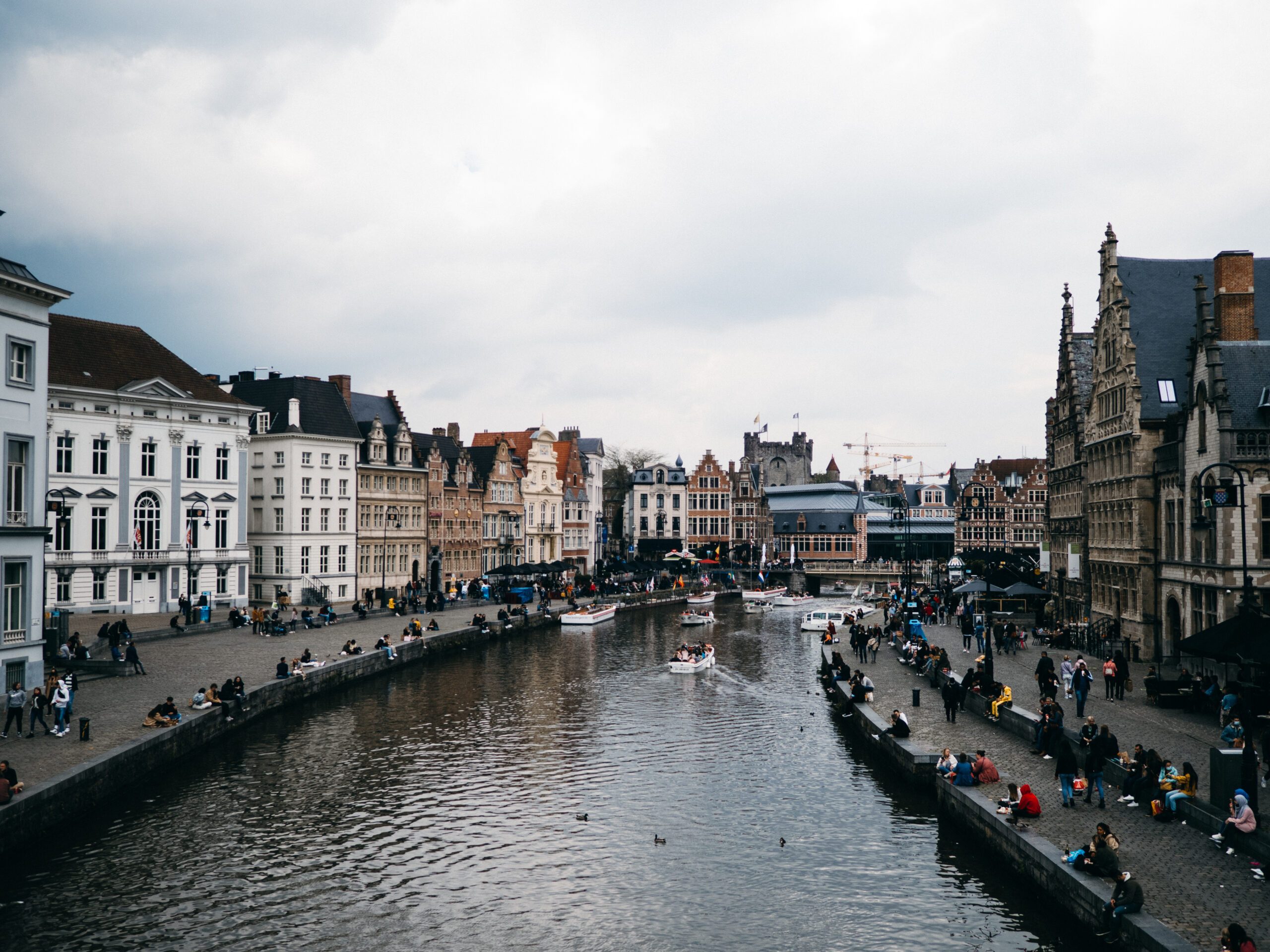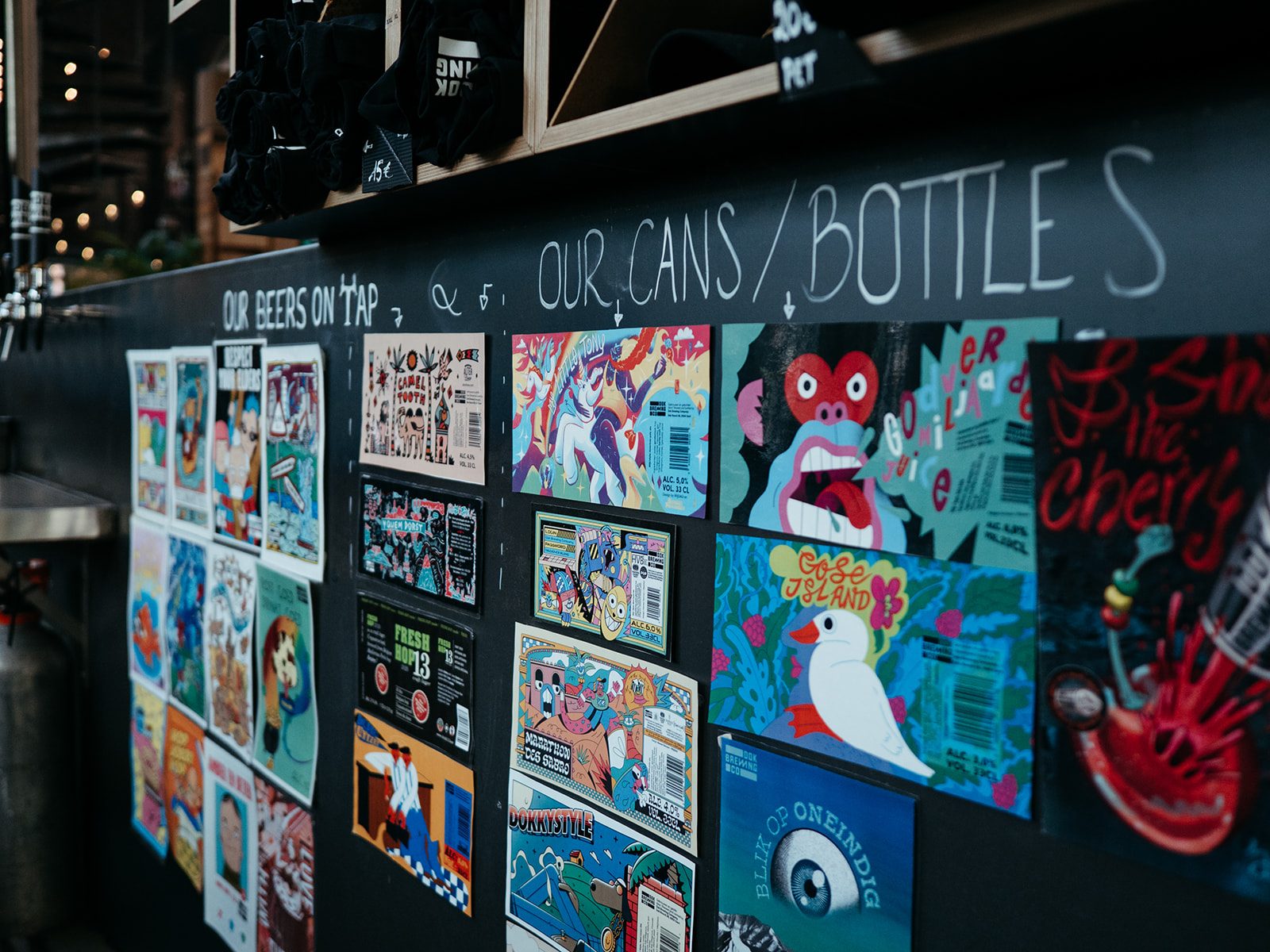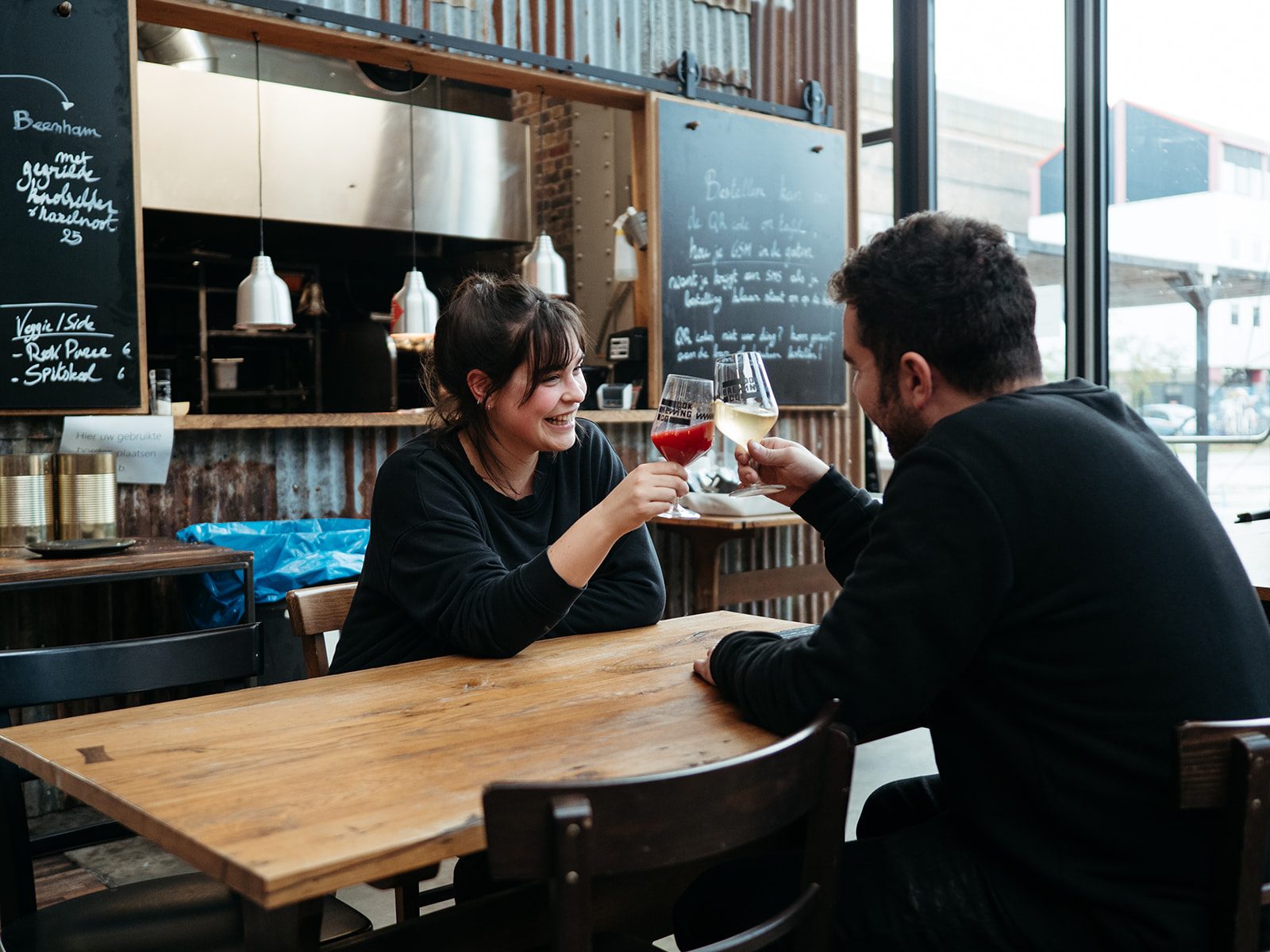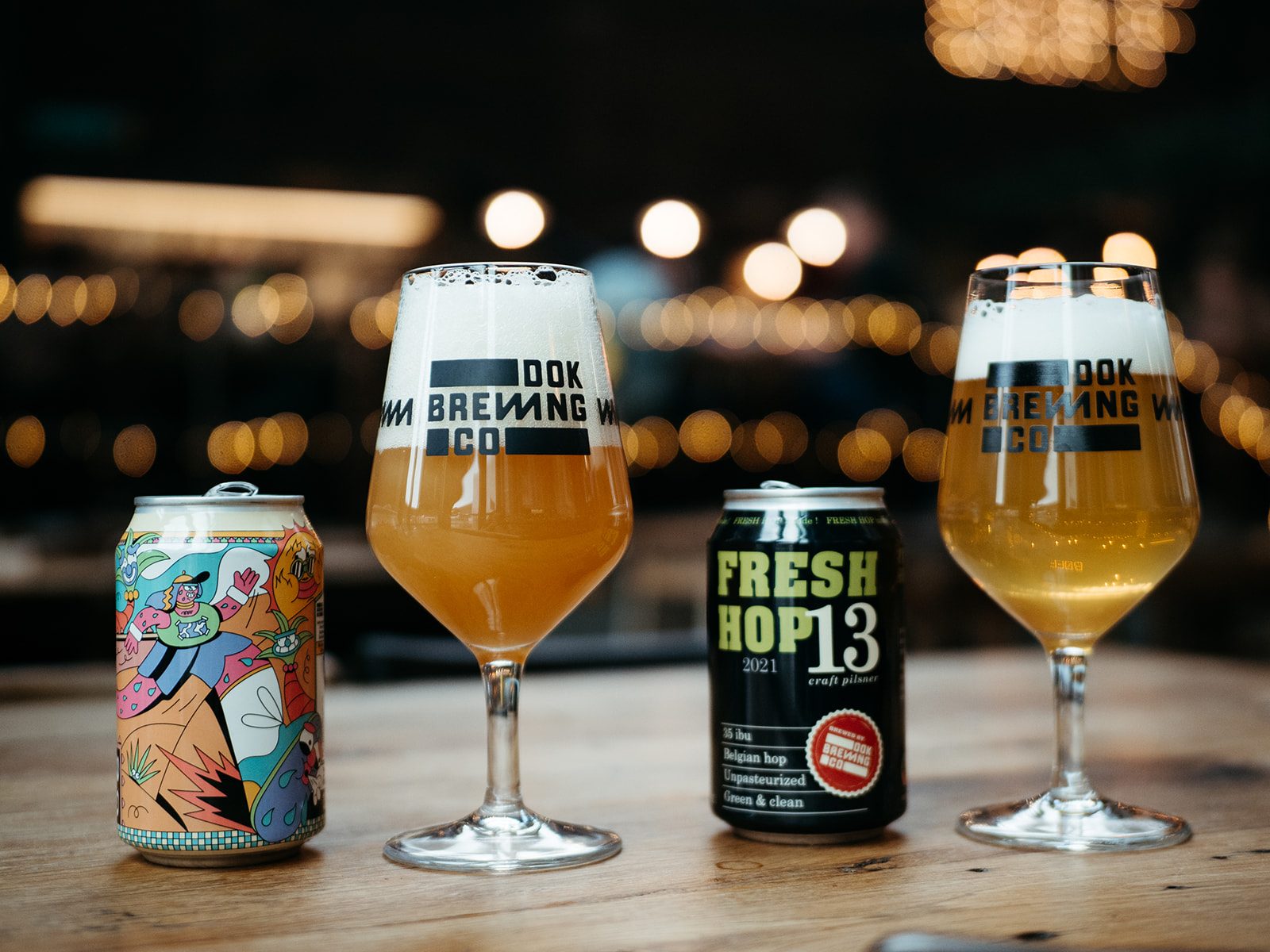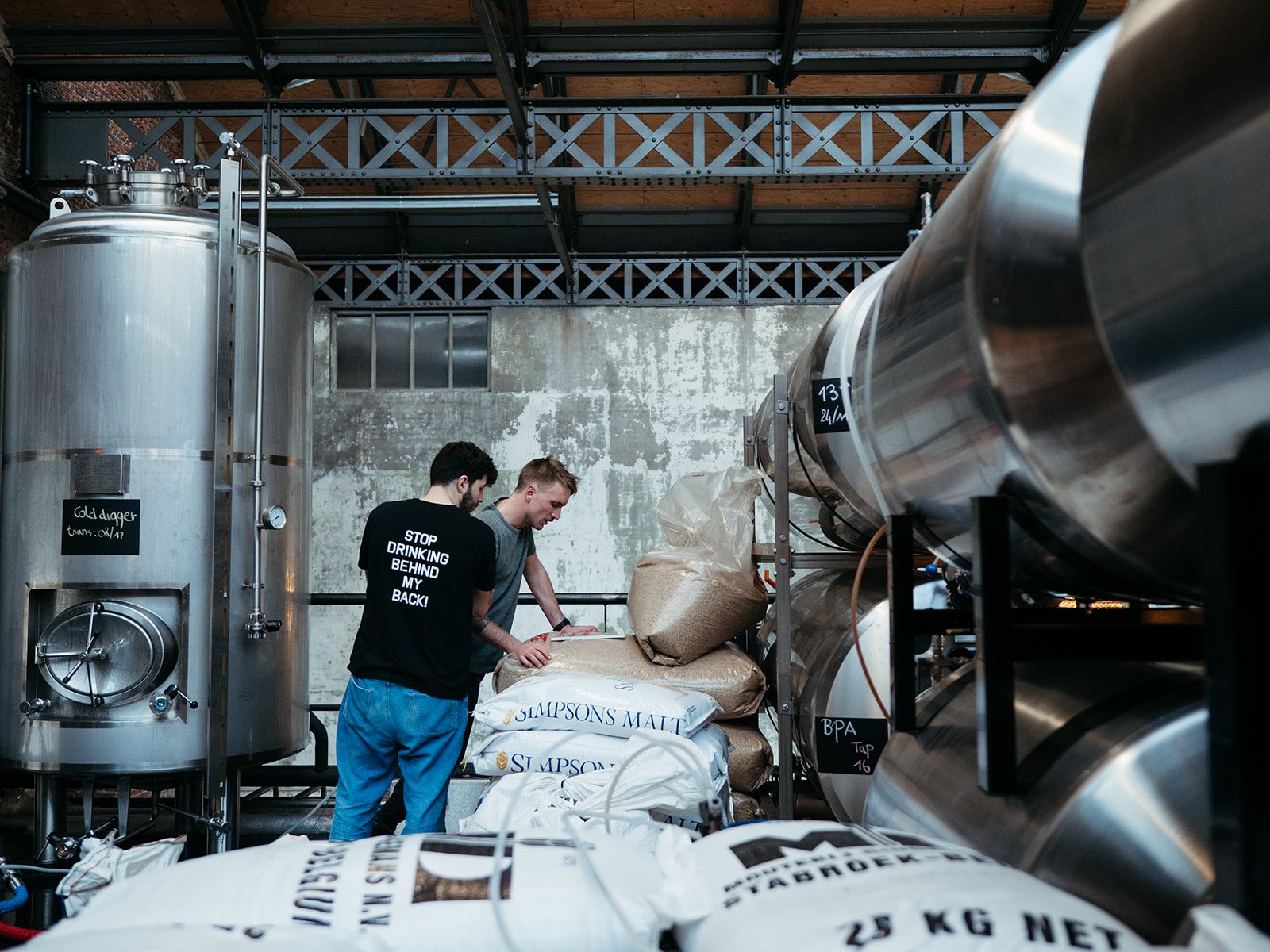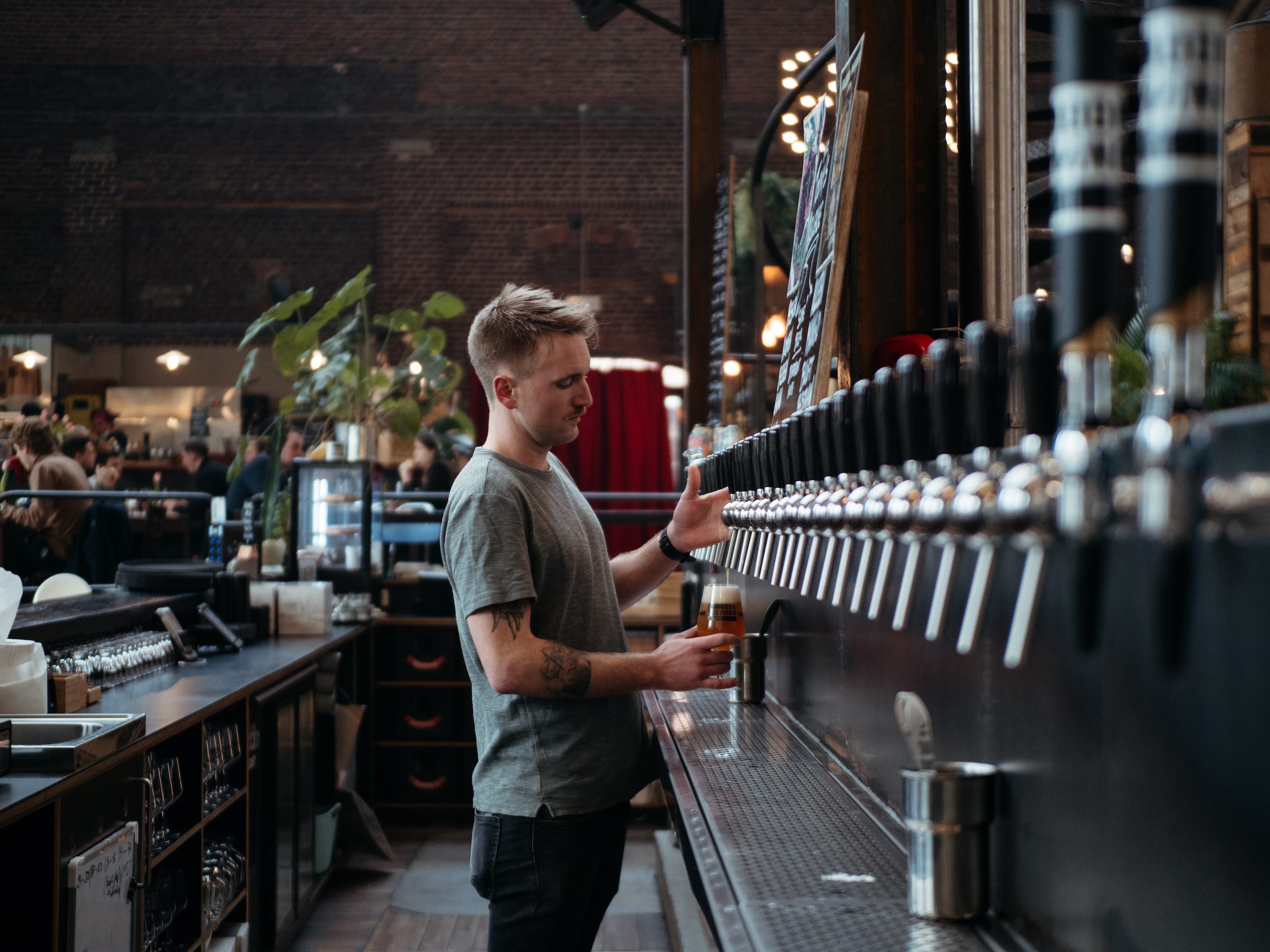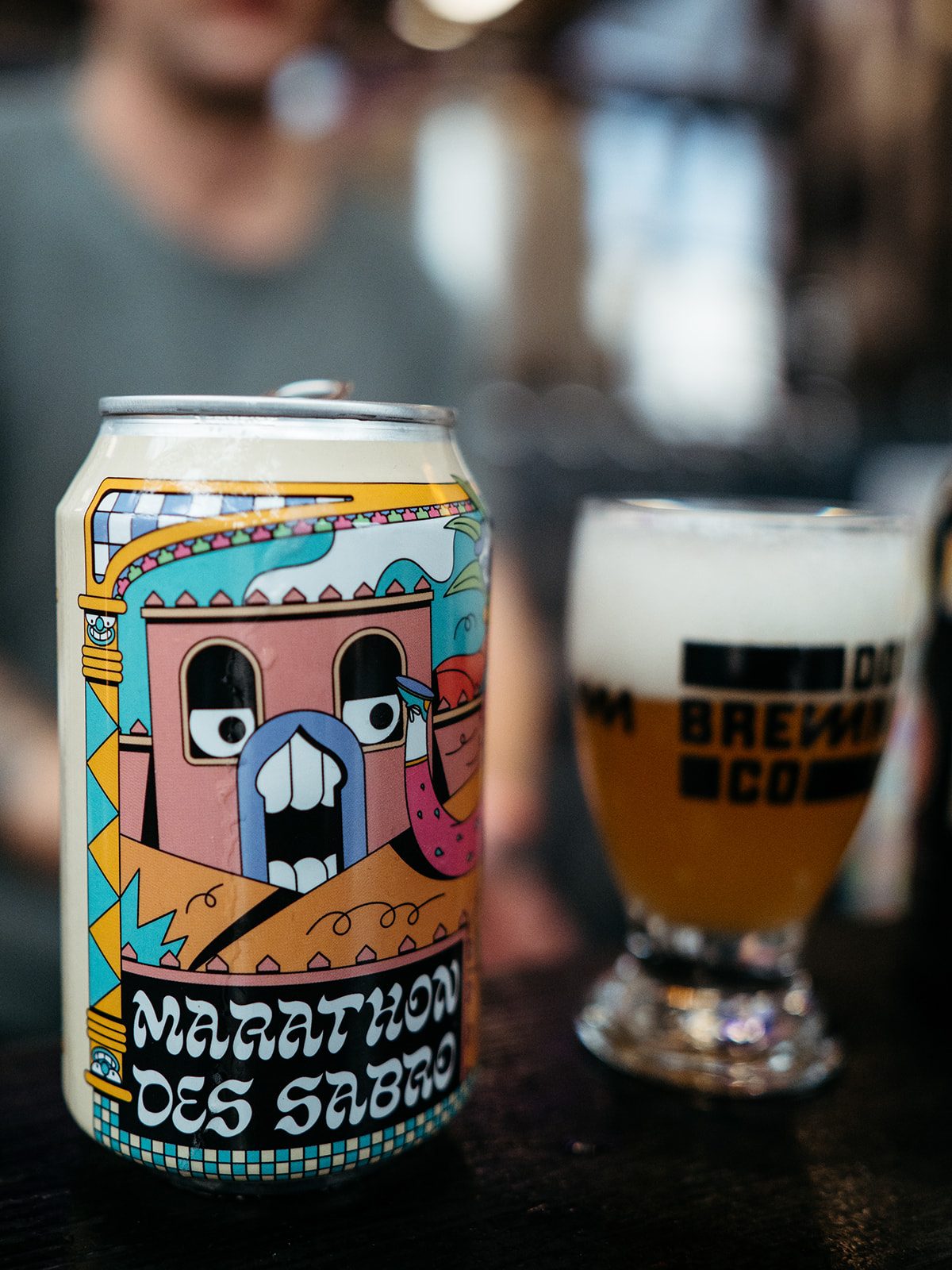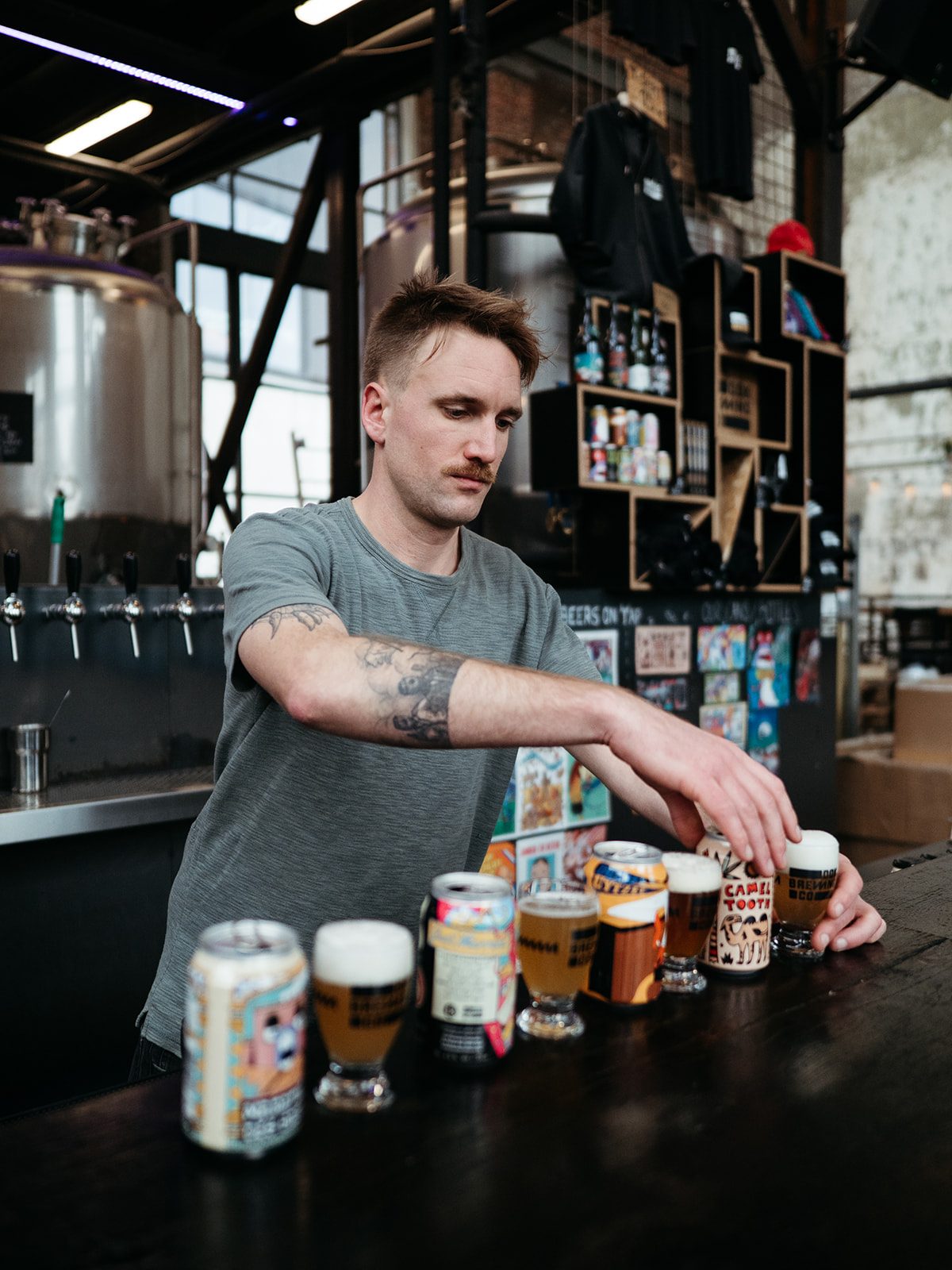The Belgian city of Ghent is a place of contradictory extremes: an historical city with a thriving young population; prestigious university buildings climbing out of characterful old neighbourhoods; and a relaxed, laid-back vibe amidst some of the most explosive festivities in Belgium. How does beer in Ghent sit between these extremes?
Words by Melanie Epp
Photography by Ashley Joanna
Edited by Breandán Kearney
This editorially independent story has been supported by VISITFLANDERS as part of the “Common Place” series. Read more.
As a teenager, Janos de Baets couldn’t afford proper running shoes. He couldn’t afford much of anything. Financial circumstances in his household were challenging; family relationships complicated. His mother had been out of the picture for years, and his father had just moved from Belgium to Spain. Before leaving, Janos’ father gave him two options: move in with your grandmother or live on your own. He chose the latter, opting for independence over security. He said goodbye to Waregem and headed to the nearby city of Ghent to try to make himself a new home.
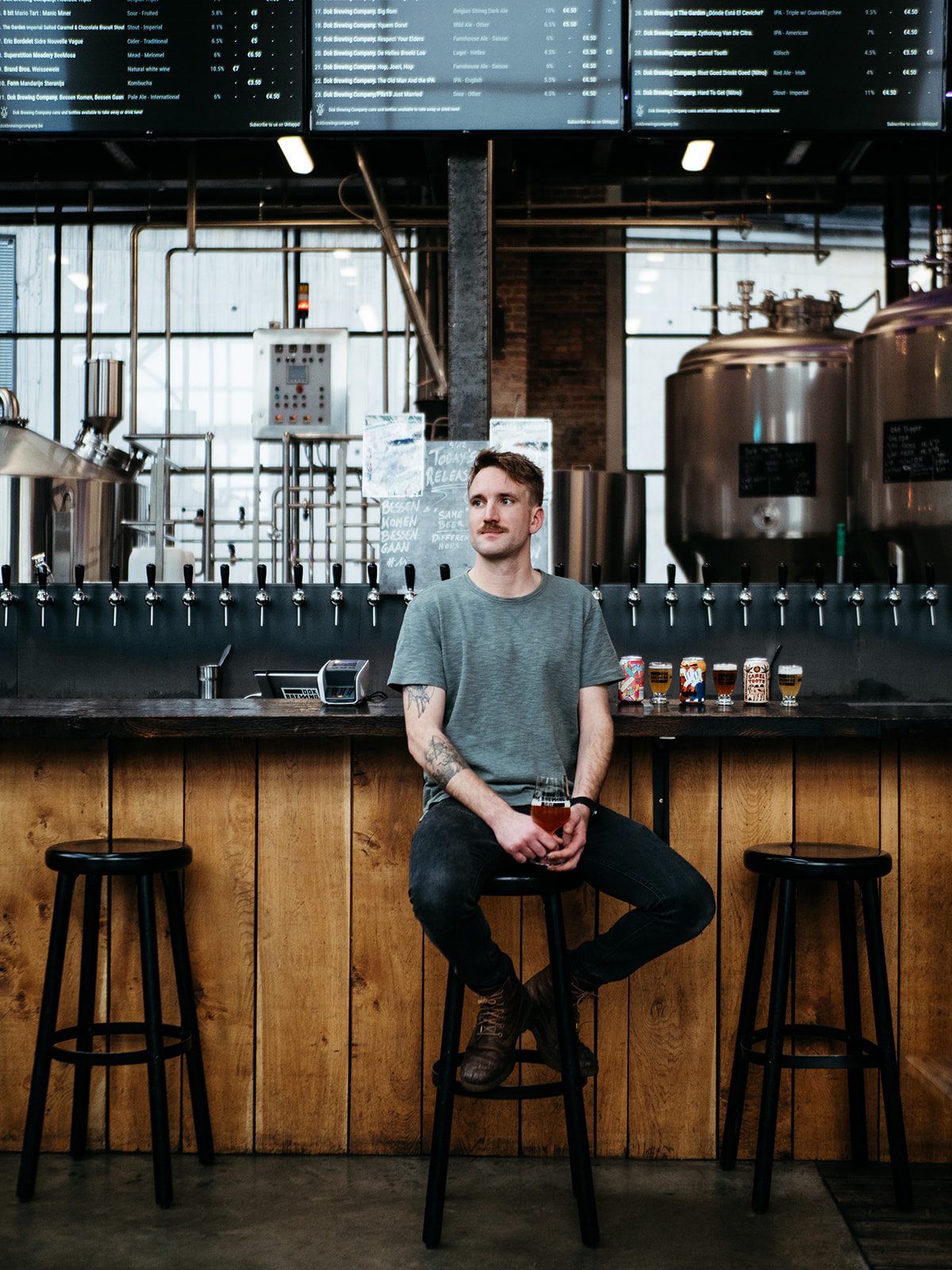
Life on his own in Ghent was tougher than he’d expected. While others his age played after-school sports or hung out with family and friends, Janos worked to earn money to pay his rent. Yet, at the end of each month, he still found it difficult to make ends meet. School wasn’t going well either, probably because he spent more time partying than studying.
Janos dropped out of technical school after just six months and started the search for meaningful work. He wanted a challenge—a job he could be proud of. He quickly discovered that carrying mail for Belgium’s national postal service wasn’t for him, so he took a job in construction instead. The pay was better, but he couldn’t find common ground with coworkers whose conversations centered around women and football. Next, it was factory work, but it offered little room for creativity, and Janos loathed doing the same task over and over again. By the age of 21, Janos’ resume was a disjointed list of assorted, short-term gigs. It signposted a lack of education and a potentially temperamental nature. “I was pretty lost,” he said.
Janos De Baets is now the Head Brewer and Co-Owner of DOK Brewing Company in Ghent, a Belgian city in the province of East Flanders. He’s also an endurance runner. On some runs, Janos thrives on obstacle-filled trails that force careful concentration; roots, rocks, and mud are the adversaries he seeks out. On other runs, he finds harmony on the open road, seeking equilibrium through steady cadence and perfect tempo. On his way to becoming a successful brewer and a respected leader in Ghent’s independent beer community, he has fought to find balance in the intensity of his obsessive personality. His self-discovery has taken place in a city with contradictory extremes at its very core.

One day back in 2011 when Janos was 21, he saw an ad for a job as an assistant brewer. He’d never heard of De Proefbrouwerij—“The Test Brewery”—but was intrigued by the opportunity to create. He was looking for a challenging job in which he could immerse himself. Belgium’s first entirely contract brewery, “De Proef”, as locals call it, produces beer for third-parties who do not have a brewing facility of their own. It’s located less than 15 minutes’ drive to the northeast of Ghent and has produced beers for Scandinavian companies such as Mikkeller, Omnipollo, and To Øl, and Belgian ones like De Vliegende Paard, The Musketeers, and Viven.
In the interview for that assistant brewing job at De Proefbrouwerij, Janos might have looked the part—faded black jeans, high-top runners, and a black T-shirt that barely hid his tattoos—but he had no experience working in a brewery and no brewing qualifications. Tugging nervously on his trucker’s cap, he looked down at his resume, suddenly aware of its inconstancy. He could see owner Dirk Naudts was skeptical. Janos promised to work hard. Dirk yielded and agreed to a one-week trial.
Janos’ first tasks at De Proefbrouwerij included purging yeast, dry hopping beers, and weighing hops. He was in awe of the complexities of the brewing process. “The first day I worked, I actually had the feeling that I found what I was looking for,” Janos said. At the end of the trial week, Dirk approached him and said they needed to talk. Janos began to fidget. “Fuck,” he thought. “I’m getting fired.”
But when Dirk called him into the office, it wasn’t to fire him. It wasn’t to hire him as an assistant brewer either. It was to offer him a job as a brewer, a production role with even more responsibilities than the one that had been advertised. Rather than experiencing feelings of elation, Janos’ fidgeting turned into a fear of messing up. But he responded to the job offer in the only way he knew how. He went all-in.
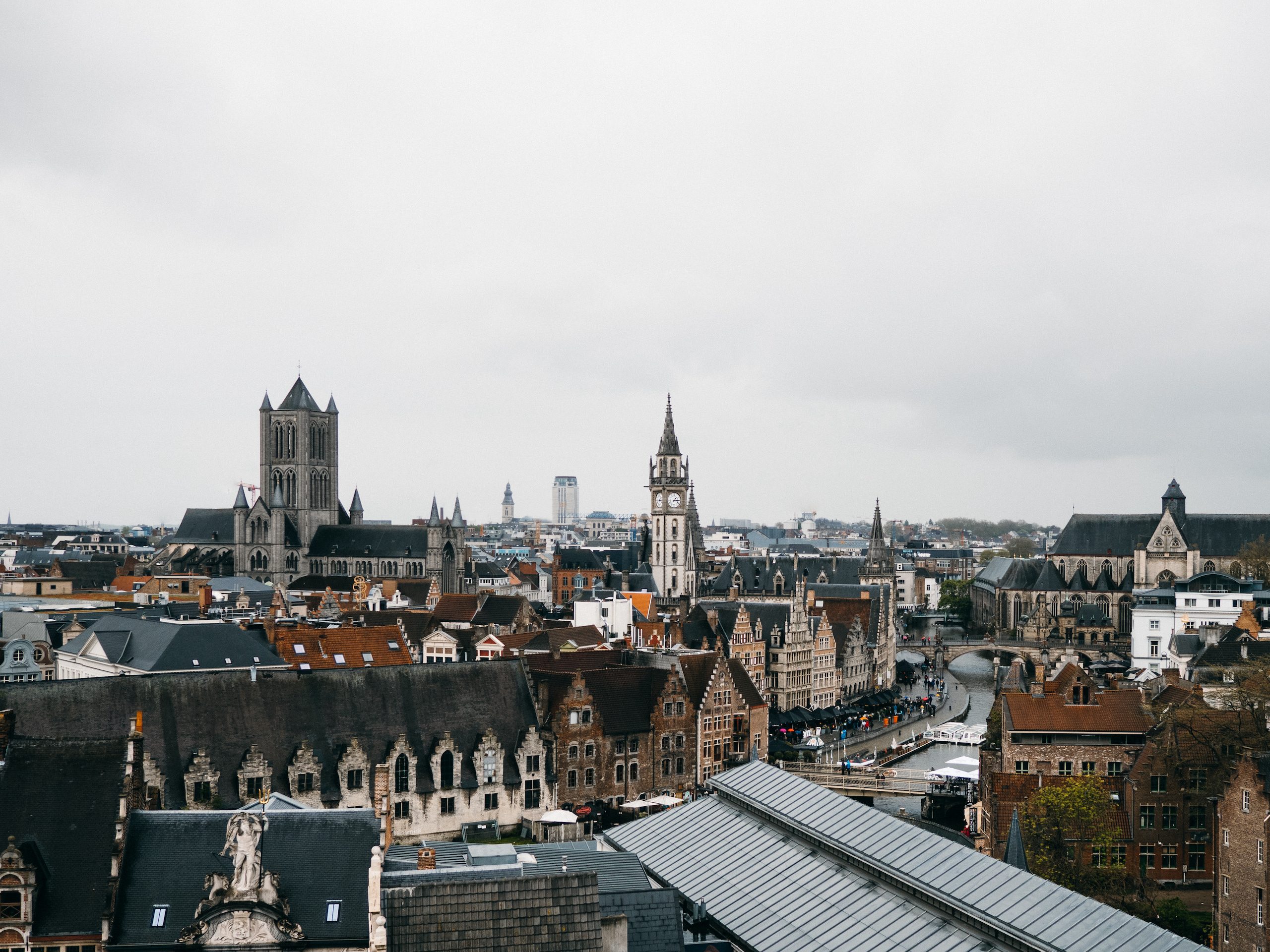
Ghent is a city of contradictions: bustling but communal; ancient yet youthful; edgy as well as laid back; mutable but enduring. At the time Janos began looking around, this dualism existed in its beer offering, too: lots of cafés, but not one brewery inside the inner ring of the city.
Brouwerij Van Steenberge, located 15 kms to the north in Ertvelde, had named their Gulden Draak beers after the gilded dragon sitting atop one of the medieval towers of Ghent’s Belfort. Brouwerij Hughye, located in Melle, was just 20 minutes south of the city but focused on a much wider distribution strategy for its Delirium beers. Brouwerij Roman named their Gentse Strop beer after the famous “Ghent Noose”, even though they were located 35 kilometres away in the rival city of Oudenaarde. The multinationals—Anheuser-Busch Inbev and Heineken—owned the vast majority of bars in the city and their products dominated the tap offerings.
Janos frequented the few places in Ghent that did have varied menus at that time—Dulle Griet, De Trollekelder, and Het Waterhuis aan de Bierkant—and when he had a little money to spare, he picked up more unique bottles from De Hopduvel and Dranken Geers, specialty shops that offer a wide range of local and international beers. When Janos was embarking on his beer education, however, he was doing so in a city that was a great place to drink, but not a great place for beer.
Ghent arrived late to the independent brewery scene, but when it did arrive, it hit the ground running. New nomadic brewers came on the scene, offering a fresh take on older styles. A modern version of Crabbelaer, the most popular beer in 16th century Ghent, was introduced in 2014. The brewers say the beer contains the rebellious spirit that characterises the city’s inhabitants.
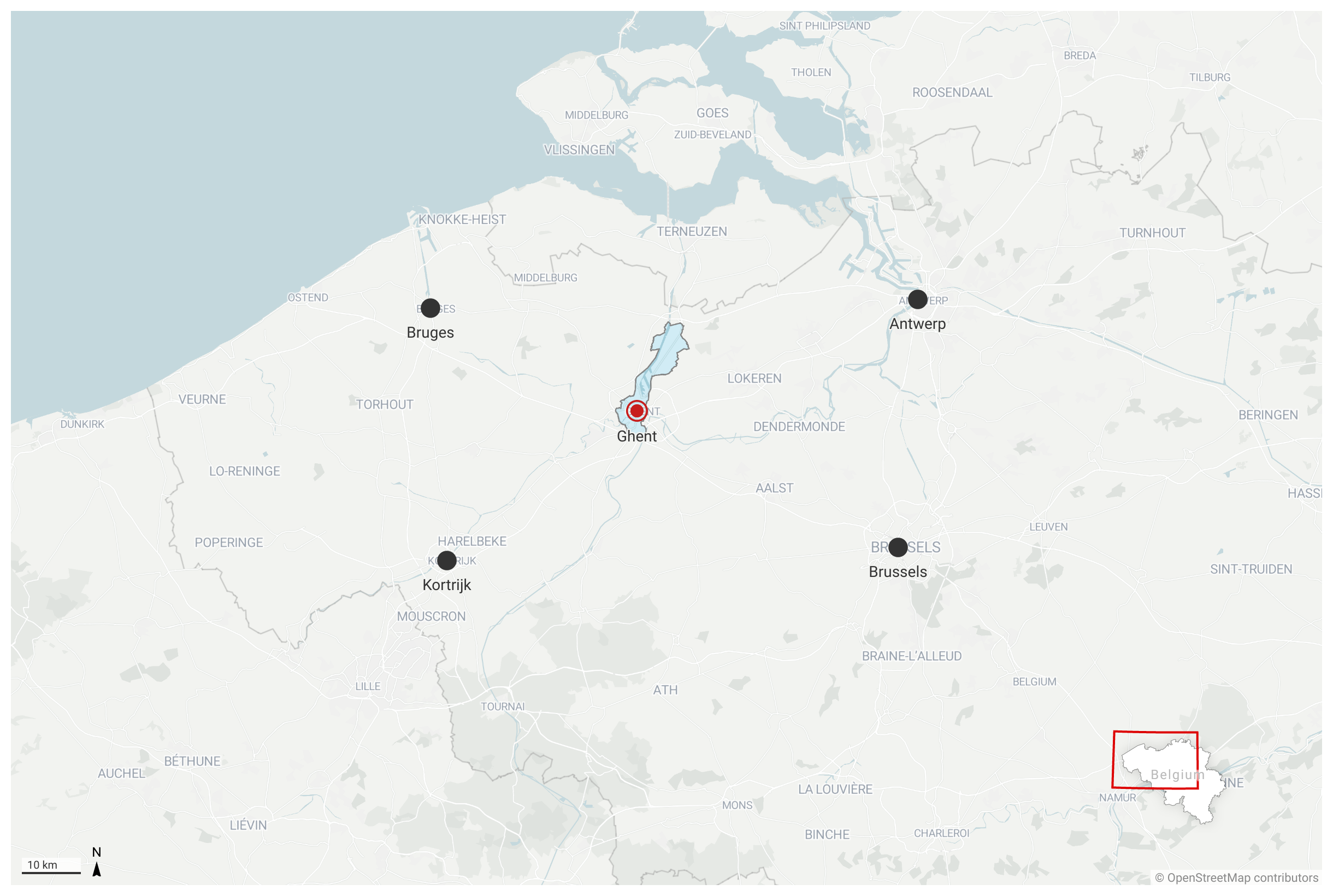
Not long after that, Dimitri Messiaen, founder of beer company The Ministry of Belgian Beer, introduced beer lovers in Ghent to Pils 13. A dry-hopped, bitter, Czech-style lager, its taste was in complete contrast to the standard “pintje” on offer in most bars in the city. Then, local couple Daniella Provost and Leslie Lambregts helped their friends Pedro De Graeve and Nicolas Dalaidenne launch L’Arogante, a blond, hoppy ale that offered a fruity aroma driven by Yakima Valley hop varieties.
Around that same time, avid homebrewers Klaas Dellaert and Liesbeth Van Raemdonck were making a name as Totem Craft Beer. In 2013, they won two brewing competitions, placing third in the Brouwland Beer Competition for a home-brewed IPA, and first in the “So You Think You Can Brew” contest for a Chilli Stout. They began producing commercial beers in other facilities such as Anders and Bryggia, becoming known for deploying unorthodox ingredients in their beers such as speculoos, rhubarb, and coconut macaroons. Zipacna (8.5% ABV) was an Oaked Rye Chipotle Stout. Their IPA, Hrist (6% ABV), was brewed using a Christmas tree.
As Ghent’s beer scene grew and changed, Janos kept his attention focused on De Proefbrouwerij where he was brewing up to 50 beers a week. Eager to please the boss he now called his mentor, Janos dedicated long hours to the job. Soon he was able to look at a recipe, close his eyes, and imagine the beer’s taste. During blind tastings, he could pick out individual ingredients, tasting for nuance and distinction. Janos found a new home with De Gentse Biervereniging, a local beer-tasting association in the city that had been hosting tastings, tours, and festivals since 2009. “I thought that I knew what beer was all about,” he said. “They really opened my eyes.”
After several years at De Proef, Janos joined forces with colleague Leopold De Ketelaere and the pair launched their own brand of beer: Hedonis Ambachtsbier. They were inspired by a new wave of breweries in Belgium such as Brasserie De La Senne and Brouwerij ‘t Verzet. At first, they brewed little more than 200 liters a week at home. But following a party they held in a Ghent squat reserved for circus artists, friends and family pushed them to brew more. They began brewing at the Maenhout, Contreras, and Verzet breweries. Their Pale Ale Ouwen Duiker became a favourite. Suzanne was a Saison. Beer enthusiasts from the Gentse Biervereniging looked forward to the annual reincarnation of their Excuse Me While I Kiss My Stout, an imperial stout that offered something new in flavour each year.
Meanwhile, the city’s hippest cafés began to fill their fridges with new options. Café Afsnis, Kantien, and Café Gitane expanded their menus to include Belgium’s best new independent brewers, especially those that hailed from Ghent. When Olivier Jacobs and Ben Bruyneel opened Ganzerik in January of 2016, their aim was to serve local and international craft beer alongside comfort food. Five of their 12 taps were dedicated to Pils 13, t’ Verzet, De Ranke, Dupont, and Jandrain-Jandrenouille. Another three were set aside for a rotation of brewers, selected first by Olivier Jacobs, and later by American beer specialist Anthony Tartan.
Ganzerik’s first guests were mostly comfort seekers in the Rooigem and Brugse Poort neighbourhoods used to traditional beer menus with predictable options. Later, though, the city’s biggest beer lovers—members of Gentse Biervereniging, and people like David Boon, owner of Bar Beenhouwer, Ghent’s fist entirely independent beer bar—made it their second home. “It was a risk, especially for that neighbourhood, to put an American on the bar and only crazy beers on tap,” said Jacobs. “But Tony was very good with the beer guests. He put a lot into spreading beer love.”
Not long after Ganzerik opened its doors, Janos stopped by to ask about hosting a private party. He wanted to invite friends and family to taste the newly tweaked Suzanne. It was the first time he and Anthony Tartan would meet. Anthony liked what Hedonis was doing. “Their beers were familiar enough for your conservative drinkers, but interesting enough for people that wanted something a little bit more,” he said.
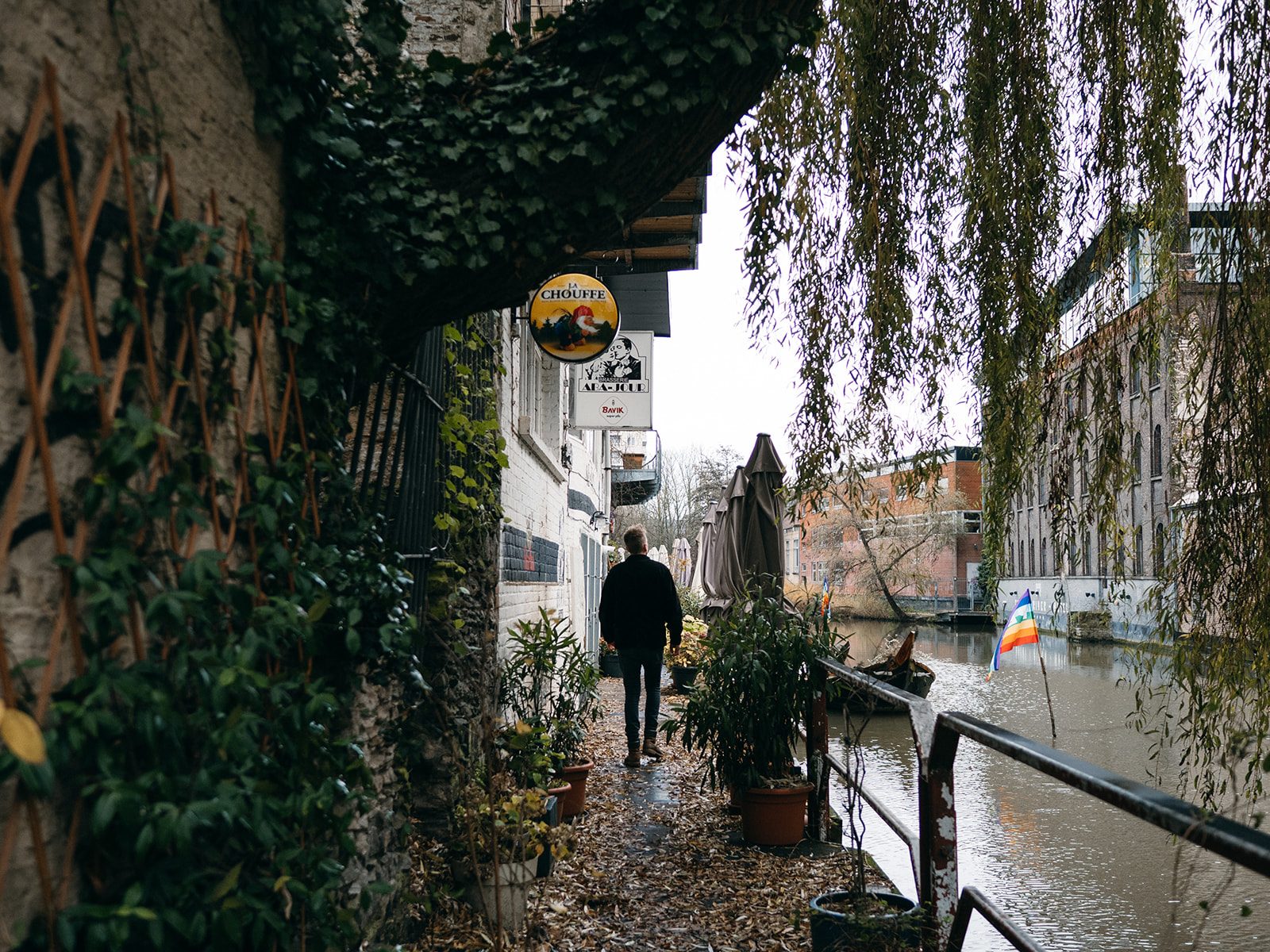
As the scene developed, so, too, did the need to protect it from being overshadowed by Belgium’s larger breweries. In 2016, local brewers joined forces under the umbrella non-profit Gent Brouwt, choosing to see each other as colleagues rather than competitors. The inaugural meeting at Kantien café brought together the makers of Crabbelaer, Pils 13, L’Arogante, Totem, Hedonis, Gentse Gruut, and De Laatste Drinker.
“We were all too small to do big things,” said Dimitri Messiaen of Pils 13. “We wanted to teach the Ghent people that there are more than just the big breweries outside of Ghent.”
Many of Ghent’s new brewers met in Kantien knowing Dimitri would give their non-traditional beers a try. He had just launched Pils 13, and dedicated one of the café’s four taps to the pilsner. The rest he changed up as new and interesting beers became available.
The collaboration provided support for Ghent’s newest brewers and helped to put them on the map. “I know how difficult it is to go to a decent bar with your decent product,” Dimitri said.
It wasn’t long after Gent Brouwt’s inaugural meeting at Kantien that some of the brewers—Dimitri Messiaen of Pils 13, Daniella Provost of L’Arogante, and Janos De Baets of Hedonis—began talking about starting a physical brewery together. Dimitri had already looked into opening a small brewpub at Kantien, but the space wasn’t big enough to accommodate the dream. Then one day he walked into Hal 16 in DOK Noord. Located in the old docks in the north of the city, DOK Noord was under redevelopment and the old warehouse where DOK Brewing Company sits today was available. It needed a lot of work, but it was the perfect space for a brewpub.
Independent beer in Ghent was thriving and a new community of producers and beer enthusiasts was emerging. Janos and Lien had a baby on the way. Hedonis was establishing a following and the idea for a DOK brewpub had taken root. But for Janos, things were about to swing to the opposite extreme.
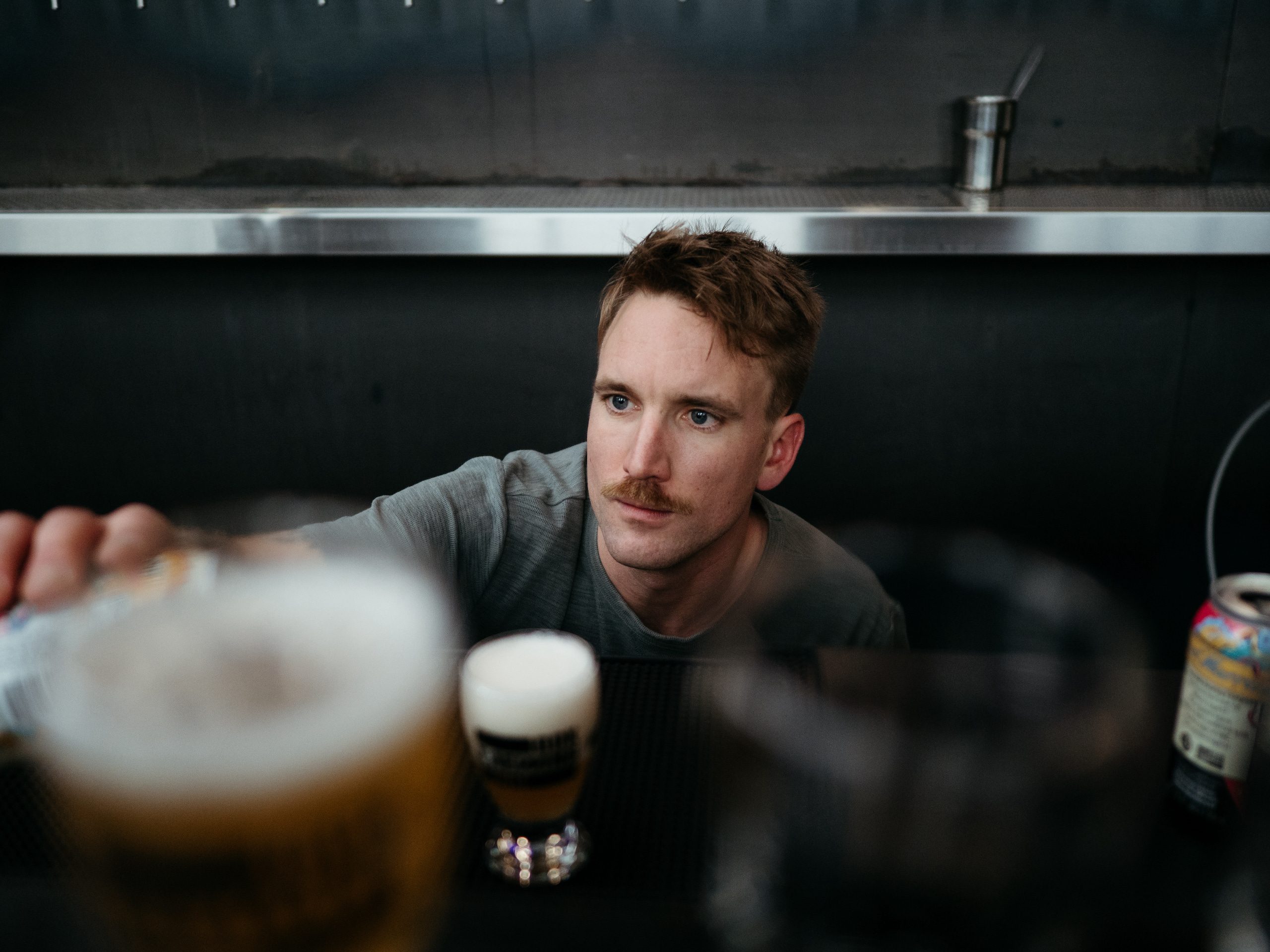
In 2016, Janos was put in charge of the afternoon shift at De Proefbrouwerij where he led a team of three, including himself. Coupled with his work for Hedonis and making plans for what would become DOK, he and his girlfriend Lien were preparing their home for their soon-to-be-born daughter. On average, Janos was sleeping three to four hours each night. He was running out of steam. So he decided to run. “I need extreme exercise to calm my mind,” he said. “Otherwise I work super hard constantly.”
His chaotic mental to-do list was filled with tasks at De Proef. It was a high-pressure job that required intense focus. He enjoyed the challenge, but his mind would often drift to Hedonis and then to DOK. They dangled the promise of advancement and adventure. It was one thing to follow recipes, but something entirely different to create your own. Giving up the stability of De Proef, especially with a baby on the way, seemed foolish, though. Dirk had been good to him. He’d given him a chance when no one else would.
The long hours and mental pressure at De Proef took their toll on Janos. When some of the more experienced brewers moved on to other jobs, Janos found himself in charge of training the person who would later become his new boss. “That wasn’t really good for my motivation,” he said.
And then burnout. When the alarm went off one morning in 2017, instead of jumping out of bed and heading out on his run, Janos hit snooze and rolled over. He called Dirk and promised he’d be in the next day. He just needed sleep. But that evening, he found himself feeling worse. The next day, his doctor told him to take a week off. One week turned into a month. Dirk promised to hold his job.
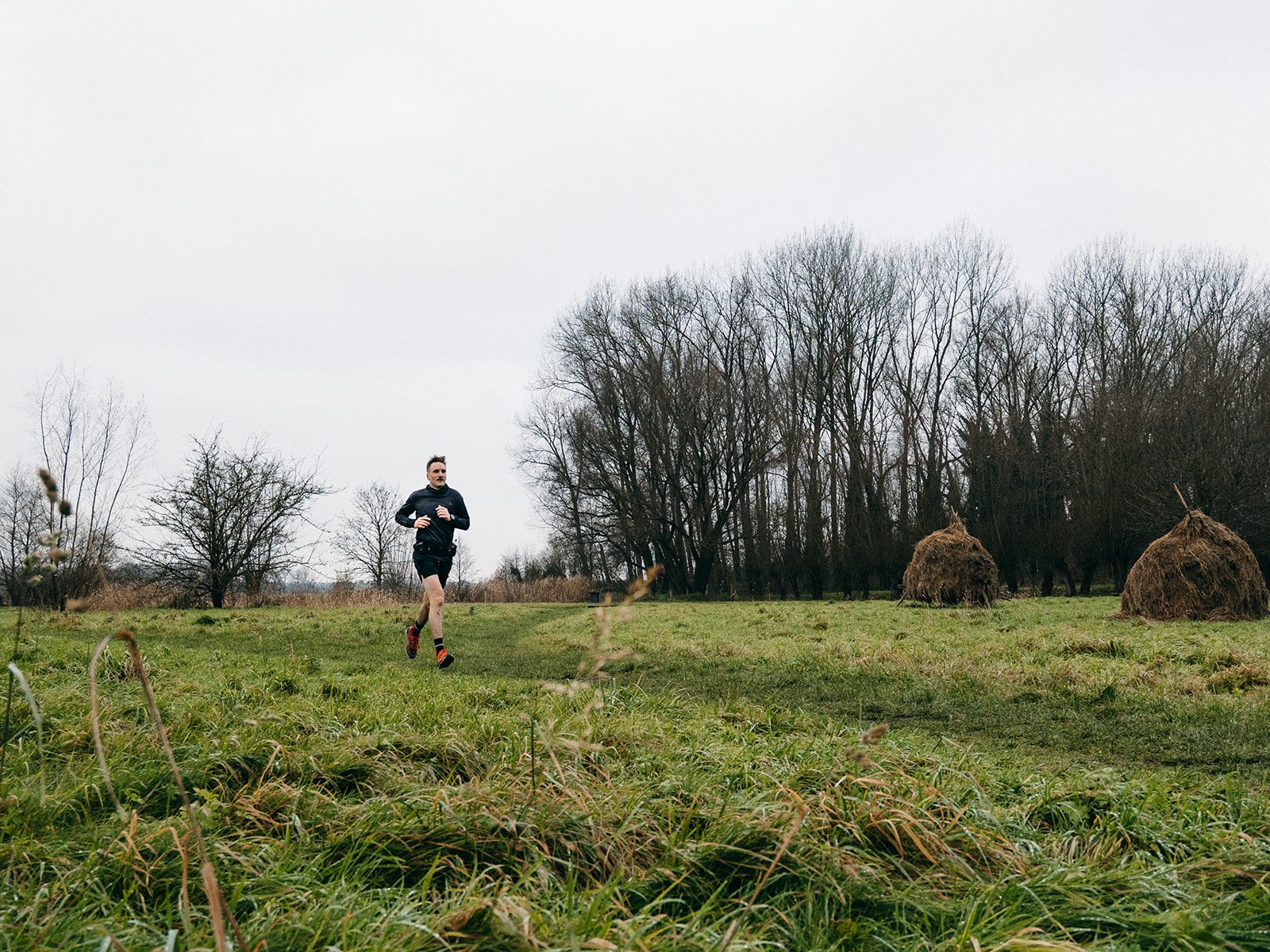
Over the month that followed, Janos built a new routine. He cut back on work for Hedonis, instead focusing on his growing family and himself. He spoke to a psychologist who assured him that it is possible to find balance in the extremes. And he ran. He learned to run on his heartbeat, pushing his body to the edge of its limits, but no further. Running provided a space to dream, and when he did, he dreamed about DOK.
During his break, Dirk called weekly to ask when Janos would return to work. At the end of the month, the answer was clear. Janos thanked Dirk for the opportunity, but said he wasn’t coming back. To brew his own beers, to build his own concept—that was his future. On his last day, he and Dirk sat down together and said an emotional goodbye.
“Without the Proef, I wouldn’t be sitting here,” he said. “I wouldn’t be running DOK, I wouldn’t have had Hedonis. Without that chance, nothing was possible.”
The next obsession had already taken hold. Ghent was about to get a new brewpub.
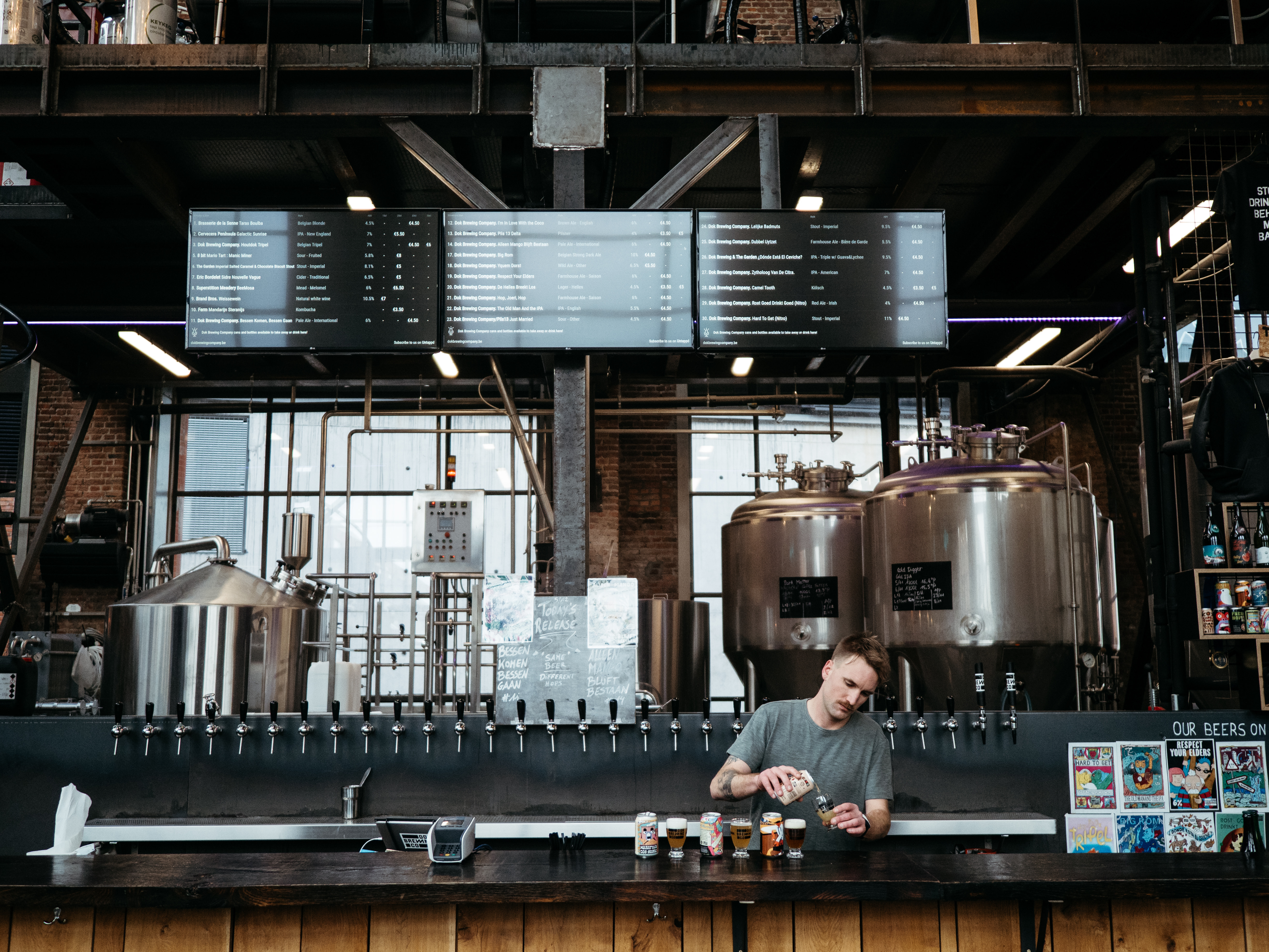
DOK Brewing Company opened in the summer of 2018. Initially, many of its 30 taps were dedicated to the brewpub’s founders and featured Pils 13, L’Arogante, and Hedonis. The other brewers were carefully selected by tap manager Anthony Tartan, who had moved from Ganzerik to DOK, bringing with him a wealth of beer knowledge that helped ease Ghent locals into a new beer scene. The brewery and bar are located in Hal 16 at Dok Noord in the north of Ghent.
On opening night, the bar was a madhouse. Used to working in a neighbourhood bar, Anthony admits he was somewhat ill-prepared. “After the first hour the first keg kicked and I thought, ‘Shit, I’m going to run out of beer’,” he said. Fellow brewers, beer lovers, and Ghent bar owners had gathered in their droves to celebrate their new brewpub. Janos De Baets and the DOK Brewing Company project became a source of inspiration.
New players emerged, often using DOK as a meeting place for ideas. Another brewpub, Brouwbar, had opened on the Oudburg a few months earlier in 2018. Olivier Jacobs from Jigger’s cocktail bar, also in in Oudburg, and Ben Bruyneel, now sole owner of Ganzerik, released Pony’s, a blonde and hoppy, low-ABV ale. Totem opened their own brewing facility in nearby Evergem. Daniella Provost and others recently launched Tourette Brewing in the Gentbrugge area of the city. Stroom Brouwers opened its doors on Forelstraat in August of 2021, those involved bringing experience from a previous Ghent beer operation called Humboldt & Gauss. Like DOK, Stroom works closely with fine artists who create unique artwork for their cans.
To date, Janos has created over 100 beers for DOK, some of which have been collaborations with his heroes: he brewed a wheat ale in May of this year with the brewers from Verzet, and in August, Yvan De Baets of Brasserie De La Senne came to DOK to brew Dubbel Uytzet, a take on an ancient multi-grain Bière de Garde originating from the Ghent region. The brewpub now bottles and cans beer which is sold in local bars, cafés, and restaurants. DOK Brewing and Pils 13 recently merged to form one company. Their beer has become a local mainstay.
DOK’s approach to beer moves between extremes, and Janos has grown comfortable with that dynamic. On one hand, no beer is ever brewed twice at the brewpub, and Janos and his team work with a series of artists for the labels, changing artists every five beers. There’s a huge diversity of styles, and many carry humorous, Ghent-specific names, with most being clean ales with quick tank turnarounds. On the other hand, Janos has become obsessed with slower, more considered projects, such as mixed fermentation beers or beers that have a wild element. These beers are informed by his respect for the traditions of Oud Bruin and Lambic in Belgium, and inspired by trips to farmhouse brewers in Norway who use Kveik yeast. Janos even created a wild house culture from the contributions of multiple breweries, including Cantillon and Nevel, who visited DOK for a festival this year, pitching their cultures into white wine barrels to produce a wild beer called Ghentoise. “You have to embrace the fact that you actually can’t control it,” he said. “You just have to respect it.”
If there’s now an internal acceptance of Janos’ self-admitted intensity in the brewhouse, he has also embraced those extremes in other parts of his life, most notably in his running. At first, he ran to clear his mind, and to channel his nervous energy. Now he runs obsessively, finding balance in chaos and embracing the reality of a dualistic and contradictory world. On New Year’s Eve 2020, Janos ran his first marathon. The organised race he was planning to run had been cancelled, so, in Janos’ indelible way, he mapped out his own marathon. In the fall of 2021, he competed in his first half-Ironman. He went in not caring if he placed last—the goal was just to finish—but he did well. He wants more.
In March of next year, Janos will compete in the Marathon des Sables, running 250 kilometers over seven days in the Saharan desert in Morocco. It’s an ambitious goal, but one that’s inspired him to look outward.
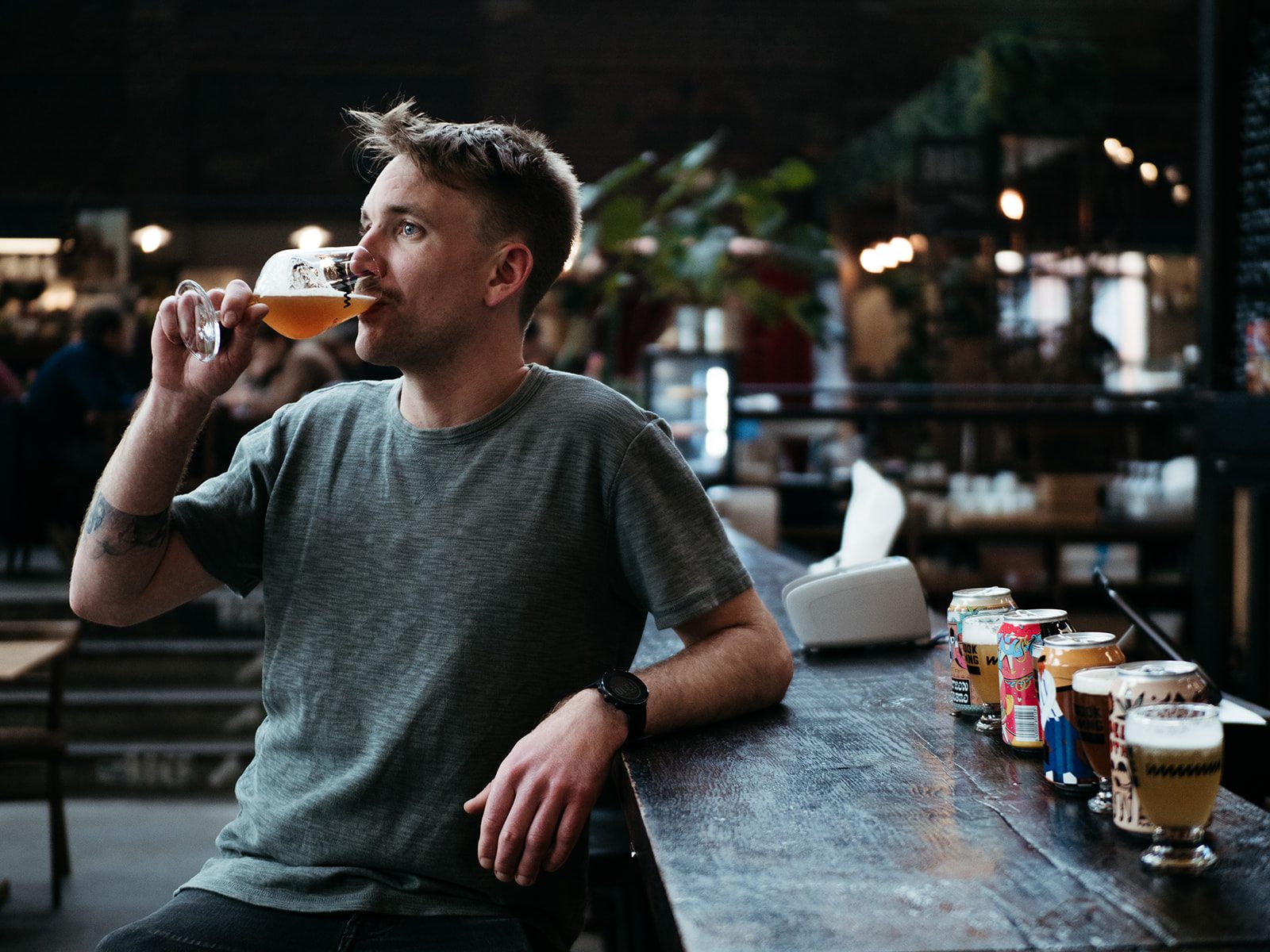
In October just past, DOK Brewing Co. released Marathon Des Sabro, an aromatic session New England IPA of 4% ABV showcasing Sabro and Mosaic hops. The beer was launched at an event sponsored by those who had collaborated on the beer with Janos: Belgian ingredients supplier HVB, Yakima Chief Hops, Simpsons Malt from the UK, creative studio Eindelijkvrijdag, and contract canners CanxLab. Profits raised from sales of the beer went to Belgian youth through VZW Jong, a non-profit youth welfare association based in Ghent.
The profits will fund a running project in line with the association’s aims: providing hope through activity for underprivileged kids. Janos hopes that the funds raised will help someone get the running shoes he couldn’t afford when he was a teen. It might be all they’ll need to get themselves up and running.
*


